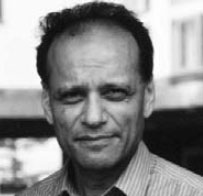Partha Dasgupta

Partha Dasgupta, who was born in Dhaka (at that time in India) and educated in Varanasi, Delhi, and Cambridge, is the Frank Ramsey Professor of Economics and past Chairman (1997-2002) of the Faculty of Economics at the University of Cambridge, and Fellow of St. John's College, Cambridge. He taught at the London School of Economics during 1971-1984 and moved to the University of Cambridge in 1985 as Professor of Economics. During 1989-92 he was also Professor of Economics, Professor of Philosophy, and Director of the Program in Ethics in Society at Stanford University; and during 1991-97 he served as Chairman of the (Scientific Advisory) Board of the Beijer International Institute of Ecological Economics, Stockholm. Professor Dasgupta's research interests have covered welfare and development economics, the economics of technological change, population, environmental and resource economics, the theory of games, and the economics of undernutrition. His publications include "Guidelines for Project Evaluation" (with S.A. Marglin and A.K. Sen; United Nations, 1972), "Economic Theory and Exhaustible Resources" (with G.M. Heal; Cambridge University Press, 1979 (recipient of the United States Association of Environmental and Resource Economists "Publication of Enduring Quality Award 2003")); "The Control of Resources" (Harvard University Press, 1982); "An Inquiry into Well-Being and Destitution" (Clarendon Press, Oxford, 1993); "Human Well-Being and the Natural Environment" (Oxford University Press, 2001; revised edition, 2004); and "Economics: A Very Short Introduction" (Oxford University Press, Oxford, 2007).
Professor Dasgupta is a Fellow of the Econometric Society (1975), Fel ow of the British Academy (1989), Fel ow of the Royal Society (2004), Member of the Pontifical cademy of Social Sciences (1998), Fellow of the Third World Academy of Sciences (2001), Foreign Member of the Royal Swedish Academy of Sciences (1991), Honorary Fellow of the London School of Economics (1995), Honorary Member of the American Economic Association (1997), Foreign Honorary Member of the American Academy of Arts and Sciences (1991), Foreign Associate of the US National Academy of Sciences (2001), and Foreign Member of the American Philosophical Society (2005). He is a past President of the Royal Economic Society (1998-2001), the European Economic Association (1999), and Section F (Economics) of the BA (British Association for the Advancement of Science) Festival of Science (2006). Professor Dasgupta was named Knight Bachelor by Her Majesty Queen Elizabeth II in her Birthday Honours List in 2002 for "services to economics", was co-winner
(with Karl-Goran Maler of the Beijer International Institute of Ecological Economics, Stockholm) of the 2002 Volvo Environment Prize and of the 2004 Kenneth E.Boulding Memorial Award of the International Society for Ecological Economics, and is the recipient of the John Kenneth Galbraith Award, 2007, of the American Agricultural Economics Association.
Food and water as economic goods
Food (more specifically, nutrition) and water are two of the most urgent of material human needs. As they complement each other, they are of equal importance. Nevertheless, most societies view them differently. Food is almost everywhere regarded as an economic good, by which I mean not only that it is priced, but there is a presumption that the price reflects the cost of production, including the rent on the land on which the food is grown. In contrast, the price paid for water would seem to reflect only the cost of extraction and purification: water in situ is frequently taken to be a free good. In this lecture I shall try to identify the reasons behind this difference in attitude toward these two vital human needs. I shall also use those reasons to explain differences in the character of the acute scarcities in food and water that are currently being experienced in many parts of the globe. The current evidence would appear to be that, while water scarcity in many rgions is likely to be an enduring problem, the same is probably not true in the case of food (at least not yet).





